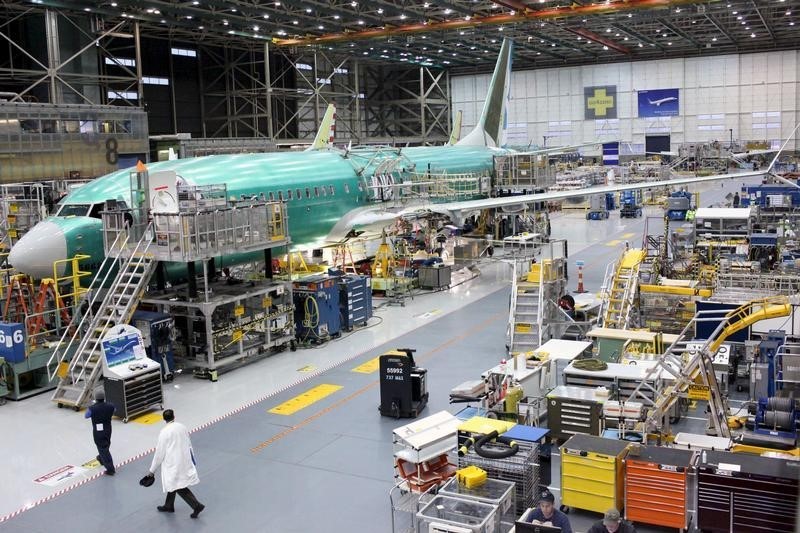Quiver Quantitative - The aerospace industry is currently navigating turbulent skies, primarily due to Boeing's (NYSE:BA) ongoing issues with its 737 MAX jets. These complications are causing significant disruptions for airlines, who are now revising their fleet and capacity expansion strategies and grappling with increased operating costs. The FAA's recent decision to halt increases in 737 MAX production has only added to these challenges. This has led to mounting frustration among Boeing's customers, including major airlines like Alaska Ailines (ALK) and American Airlines (NASDAQ:AAL), who are facing the direct impact of these production issues.
Airlines are adjusting their plans in response to the ongoing uncertainty surrounding Boeing's supply chain and regulatory approvals. Southwest Airlines (NYSE:LUV), for example, is modifying its fleet plans for 2024 due to these challenges. The delays in Boeing's deliveries are forcing airlines to keep older aircraft in service longer, leading to heightened maintenance and repair costs. This situation is reflected in Southwest's announcement of increased non-fuel operating costs for the coming year.
Market Overview: -Boeing's production freeze on 737 MAX jets sends shockwaves through the airline industry, sparking concerns about capacity constraints, rising costs, and delayed deliveries. -American Airlines CEO demands action from Boeing, highlighting mounting frustration among customers. -Alaska Air and Southwest Airlines adjust fleet plans and forecast earnings hits due to grounding and supply chain disruptions. -United Airlines considers revising its strategy, potentially excluding the troubled MAX 10 model.
Key Points: -The FAA's production freeze on the MAX 737 throws a wrench into airlines' expansion plans, limiting capacity and potentially pushing up ticket prices. -Increased maintenance costs for aging fleets add to the financial burden for airlines already reeling from pandemic losses. -Boeing's quality control issues raise concerns about future reliability and certification of its aircraft, further eroding trust with customers.
Looking Ahead: -The duration of the production freeze and its impact on future deliveries remain unclear, keeping airlines and investors in a state of uncertainty. -The pressure mounts on Boeing to address quality control issues and regain trust from airlines and regulators. -The broader airline industry faces a delicate balancing act between managing costs, maintaining capacity, and mitigating the impact of Boeing's ongoing struggles.
The broader impact of Boeing's production issues extends beyond individual airlines. The FAA's intervention in production schedules is likely to delay further the delivery of new planes, affecting the entire supply chain and exacerbating the difficulties suppliers have faced since the earlier MAX crisis and the pandemic. Carriers like United Airlines (UAL) are now revisiting their fleet plans and growth strategies in light of these delays.
In conclusion, Boeing's difficulties with the 737 MAX are having widespread repercussions across the aerospace industry. The production limitations imposed by the FAA, coupled with Boeing's own challenges, are reshaping the dynamics of airline operations and supply chains, potentially altering the competitive landscape in the aviation sector.
This article was originally published on Quiver Quantitative
